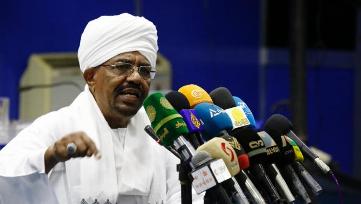Sudan’s economic crisis gives Washington leverage to support inclusive peace deal: report
August 28, 2016 (KHARTOUM) – A new report by the United States-based Enough Project said the severe economic crisis has become the greatest vulnerability for the Sudanese regime and allowed the US government to spearhead efforts to support an inclusive peace deal in the country.

“This economic vulnerability has caused sanctions relief to replace debt relief as the regime’s primary preoccupation, giving the U.S. government powerful leverage to support an inclusive peace deal in Sudan that leads to a transition to democracy” said the report
It adds that the understanding of the economic weaknesses of the government would make policymakers better deal with the Sudanese officials who according to the report “orchestrate large-scale atrocity crimes and theft in Sudan”.
“In a situation where grand corruption and mismanagement of mineral resources are among the key drivers of deadly conflicts in Sudan, understanding the Sudanese regime’s economic vulnerabilities in greater detail can equip policymakers to better tailor their financial pressure measures to target top Sudanese leaders and their enablers” the report read.
The report mentions how the regime and its supporters dominated the Sudanese economy since they came to power in 1989, saying the country’s public corporations and private sector were undercut.
“The regime and its supporters began to dominate and extract wealth for themselves from the economy’s key strategic and high-value sectors, including the oil, transportation, communications, and construction industries” it said
“The regime privatized state corporations, giving over the control of these corporations to regime-affiliated businesses and charities—on a non-competitive basis and for low prices. The regime-affiliated economic networks of hundreds of commercial companies, which dominate what might otherwise be a productive and independent private sector, constitute what many Sudanese people call a “gray economy” the report added
The report explains that the Sudanese government became highly vulnerable as a result of the economic practices created and sustained by the regime itself.
“State-enshrined grand corruption, combined with economic mismanagement and short-sighted, opportunistic over- spending of finite public money on unproductive pursuits, have left the regime heavily indebted” read the report
It also explains how the economic sanctions imposed on Iran have affected the Sudanese economy and the government officials.
“Tighter enforcement of sanctions on Iran has prompted global financial institutions to de-risk and stop doing business with risky clients, including Sudan” read the report
According to the report, the Sudanese economic crisis gives Washington and the international community a good opportunity to develop a new strategy aiming at pressing the regime to engage in a comprehensive national process that allows peaceful transition to democracy.
“In particular, the financial pressure that Sudanese leaders feel now can be tightened and eased by U.S. policymakers in strategic ways as part of a system of coercion and incentives that is one part of a broader enhanced comprehensive U.S. strategy with Sudan” the report said
The Enough Project, an atrocity prevention policy group, says it seeks to build leverage for peace and justice in Africa by helping to create real consequences for the perpetrators and facilitators of genocide and other mass atrocities.
The organization says it aims to “counter rights-abusing armed groups and violent kleptocratic regimes that are fuelled by grand corruption, transnational crime and terror, and the pillaging and trafficking of minerals, ivory, diamonds, and other natural resources.”
It has been conducting field researches in conflict zones, developing and advocating for policy recommendations and support social movements in affected countries as well as mobilize public campaigns.
(ST)
